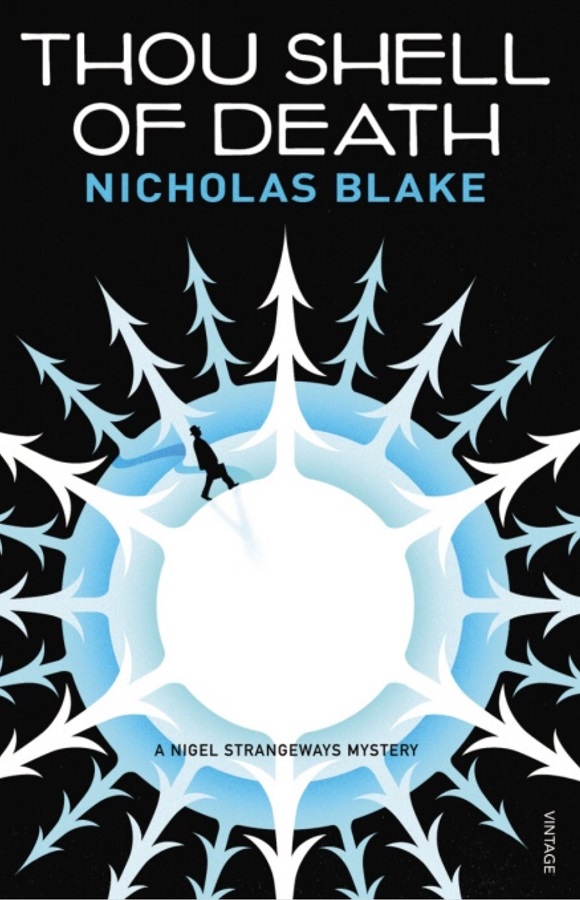Thou Shell of Death proved to be a challenging read for its age, its tedium in writing and plot, and its lack of character or consequence. Written by Cecil Day-Lewis under the nom-de-plume Nicholas Blake in 1936, Thou Shell of Death is the second of sixteen in a series of mystery novels starring Nigel Strangeways. A classic locked room mystery, it follows the death of Fergus O’Brien, a veteran pilot of the first world war. O’Brien was sent threatening letters, foreshadowing his death on Boxing Day. From there it turns over to dull characters, duller deaths, and more twists than my attention span would allow. Nigel and company travel across the stark winter of the English countryside, following leads and questioning O’Brien’s former friends.
Put shortly, this is a book that wears its age on its sleeve, with endless monologues and a wry lack of tension throughout. Even during the moments of shock, Day-Lewis always finds the time to let the characters and scenes breathe, give them time to brew a proper cuppa and sit and think things over before taking action. While this may not sound too terrible at first, it becomes almost infuriating after the ninth or tenth time around. With that said, occasionally Day-Lewis’ prose shines through, though mostly in the framing of scenes and in the general description. He stumbles over dialogue, which can last for unbroken pages of speech and uses dialects which border on comical.
With it being a typical locked room mystery
there were enough twists and turns to keep me from guessing the true identity of the killer until the end, with more than a few “room-gatherings”, in which Blake summarizes everything Nigel has learned so far. While this may sound like a point against Thou Shell of Death, the book wore against my focus to the point that I actually
welcomed them.
Another complaint, though this time not of Blake’s writing, was in the printing of the book itself. The edition I read was purchased in London and was a part of a limited reprint of this book, done up in a green hardcover with gold imprints for the text and pictures. I have no complaints about the presentation itself, but the text itself is another story. The publisher likely used Optical Character Recognition, or OCR, to scan an old copy of the book, using a computer to read the text on the page and then used that computer-generated text when printing this run of books. While this is a common practice, it seems that they did not do a good job in proofreading the text before moving to print. “I” becomes “1” on a few occasions and letters merge together to make nonsense words – for example “in” would turn into “m”. Again, not a fault of Blake, but something which did take me out of the reading experience.
Overall, if you’re in the mood for a classic cozy mystery you could do worse than Thou Shell of Death, however for me the story and characters were not enough to win me over or convince me to switch from Doyle to Blake. Read at your own risk.



